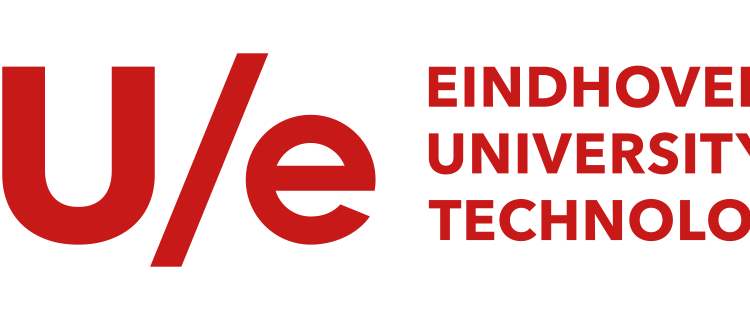Eindhoven University of Technology: Stein Stoter wins postdoc paper pitch competition
Stein Stoter (1st), Feiran Zhang (2nd), and Tim Hogervorst (3rd) took the prizes in the 2nd edition of the TU/e Postdoc Association paper pitching competition, which took place on Friday May 13th. Nine postdocs pitched their research papers during the competition, with Rector Frank Baaijens also speaking at the competition about the importance of the postdoc community at TU/e. The competition is co-organized with the four campus institutes – EIRES, EAISI, EHCI, and ICMS.
The premise of the competition is similar to the FameLab science communication competition. TU/e postdocs from all departments are invited to submit recent research papers, a set of finalists is selected by an expert panel, and then the finalists pitch their paper in three minutes with or without slides.
The final took place at the Zwarte Doos and was hosted by Barry Fitzgerald, one of TU/e’s science communication officers. Nine researchers presented pitches on scientific papers covering a variety of topics from wind turbines to electric vehicle charging, and from social sharing to sugar molecules.
After each pitch, the contestants faced questions from the jury of Martijn Heck (Electrical Engineering), Marta Costa Figueiredo (Chemical Engineering and Chemistry), Federica Eduati (Biomedical Engineering), and Mauro Salazar (Mechanical Engineering). The standard of pitches was excellent, and the jury were faced with a tough decision. In the end, they awarded first prize to Stein Stoter, second prize to Feiran Zhang, and third prize to Tim Hogervorst.
Here’s some additional information on the pitches and reaction from the winners.
Stein Stoter (Mechanical Engineering) presented a pitch in relation to a paper published in Computer Methods in Applied Mechanics and Engineering.
For his research, Stoter creates computer models to study the motion of fluids like water or air. “A lot of my research takes place on the border between applied mathematics and computer science, which for some can be complicated topics.” says Stein. “So, in my pitch, I focused on finding the right hook for my work. The paper I pitched about looked at turbulence, the complex swirling motion of water or air near objects. This is important for societal applications in engineering such as designing wind turbines.”
Naturally, Stoter was delighted to win the competition. “I’m delighted, and it’s great to see more theoretically focused work appreciated at the university. I am glad that my emphasis on the societally relevant aspects of the theoretically focused article resonated with the jury.”
For her pitch, Feiran Zhang (Industrial Design) focused on a paper that she published in the International Journal of Child-Computer Interaction.
As part of her research, Zhang looks at how people deal with emotions in collaborative learning, particularly during difficult situations such as the corona pandemic. “For my paper, we studied emotion-sharing behavior among students both online and in the classroom during the pandemic,” says Zhang. “Students felt that it was important to share negative emotions over positive ones, and they preferred to share in small groups and not with the teacher or whole class. Sharing emotions during learning can help in the learning process.”
Zhang was delighted to be part of the event and sees it as a valuable experience. “This was an exciting chance to share my research, so I felt I had to enter the competition. It was great to share the work that I’m doing with my collaborators from a different point of view.”
Finally, Tim Hogervorst (Chemical Engineering and Chemistry) spoke about a paper published in Nature Chemical Biology in November 2021.
Hogervorst’s research looks at the immune system, and the influence of sugar’s on immune response. “Sugars on the outside of cells can affect how the immune system responds. Until now, we lacked a way of studying how small changes in the sugars on living cells affect immune response. In this research, we designed a new way of following the interaction of single molecules in a cell and how small changes in sugars affect response.”
In addition, Hogervorst was pleased to get 3rd place in the competition. “The quality of the pitches was very high, so getting 3rd place is fantastic. The event was a great way to meet my peers from different domains. It was a nice opportunity to think more critically about the story of my research.”
The TU/e Postdoc Association (PDA) was founded in February 2020 with the central aim of providing a platform for postdocs to network with each other at TU/e and to provide them with support tailored to their needs.
With this in mind, and partially inspired by the FameLab science communication competition, the PDA developed a paper pitching competition that is sponsored by the four TU/e institutes – EIRES, EAISI, EHCI, and ICMS. The competition is open to researchers at all departments. This year’s competition was co-organized with EIRES, while next year’s competition will be co-organized with EAISI.
For this year’s competition, the PDA received 23 papers from postdocs based in the majority of TU/e departments.
Speaking on behalf of the PDA, Ignasi Jorba Masdéu had the following to say in relation to the event: “This event fits into one of the key pillars of PDA strategy: to highlight the excellent research performed by TU/e postdocs. We are very happy to see postdocs from across the campus involved in the event. For subsequent editions, and with the aim of further increasing TU/e postdoc visibility, we will encourage people from all TU/e to attend the final event, from students to full professors.”

